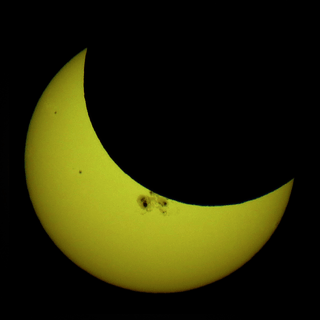Solar eclipse of May 11, 2059
A total solar eclipse will occur on May 11, 2059. A solar eclipse occurs when the Moon passes between Earth and the Sun, thereby totally or partly obscuring the image of the Sun for a viewer on Earth. A total solar eclipse occurs when the Moon's apparent diameter is larger than the Sun's, blocking all direct sunlight, turning day into darkness. Totality occurs in a narrow path across Earth's surface, with the partial solar eclipse visible over a surrounding region thousands of kilometres wide.
| Solar eclipse of May 11, 2059 | |
|---|---|
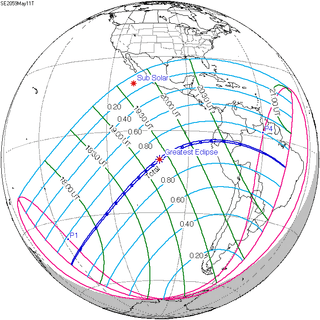 Map | |
| Type of eclipse | |
| Nature | Total |
| Gamma | -0.508 |
| Magnitude | 1.0242 |
| Maximum eclipse | |
| Duration | 143 sec (2 m 23 s) |
| Coordinates | 10.7°S 100.4°W |
| Max. width of band | 95 km (59 mi) |
| Times (UTC) | |
| Greatest eclipse | 19:22:16 |
| References | |
| Saros | 129 (54 of 80) |
| Catalog # (SE5000) | 9640 |
Related eclipses
Solar eclipses 2059–2061
This eclipse is a member of a semester series. An eclipse in a semester series of solar eclipses repeats approximately every 177 days and 4 hours (a semester) at alternating nodes of the Moon's orbit.[1]
| Solar eclipses 2059–2061 | |||||
|---|---|---|---|---|---|
| 119 | May 22, 2058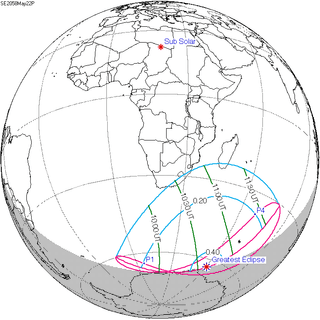 Partial |
124 | November 16, 2058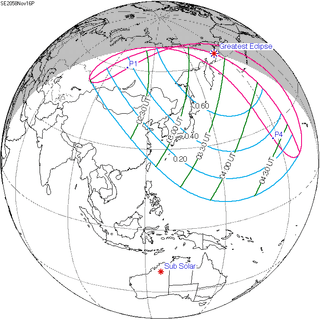 Partial | ||
| 129 | May 11, 2059 Total |
134 | November 5, 2059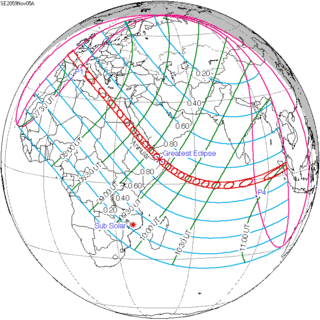 Annular | ||
| 139 | April 30, 2060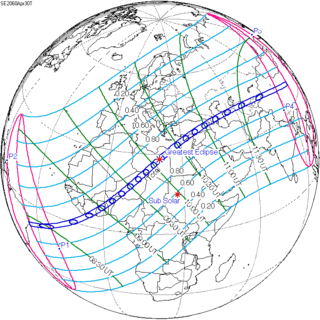 Total |
144 | October 24, 2060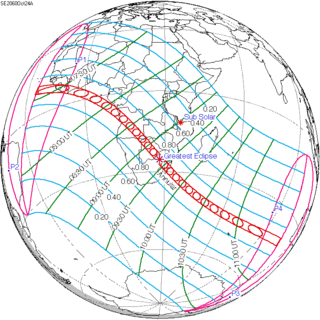 Annular | ||
| 149 | April 20, 2061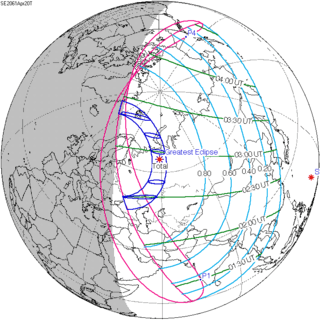 Total |
154 | October 13, 2061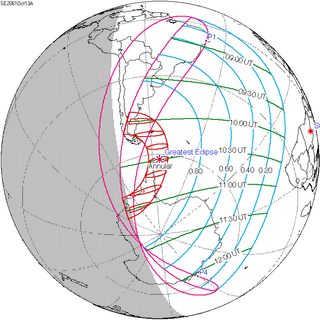 Annular | ||
Notes
- van Gent, R.H. "Solar- and Lunar-Eclipse Predictions from Antiquity to the Present". A Catalogue of Eclipse Cycles. Utrecht University. Retrieved 6 October 2018.
gollark: I fixed it!
gollark: You can sleep on the ground or whatever if youa re EXTREMELY ASHIASHutired.
gollark: WRONG.
gollark: How about, electric shocks every 10 seconds?
gollark: You *can* fall asleep while walking if you're really tired.
References
- Earth visibility chart and eclipse statistics Eclipse Predictions by Fred Espenak, NASA/GSFC
This article is issued from Wikipedia. The text is licensed under Creative Commons - Attribution - Sharealike. Additional terms may apply for the media files.
.jpg)
